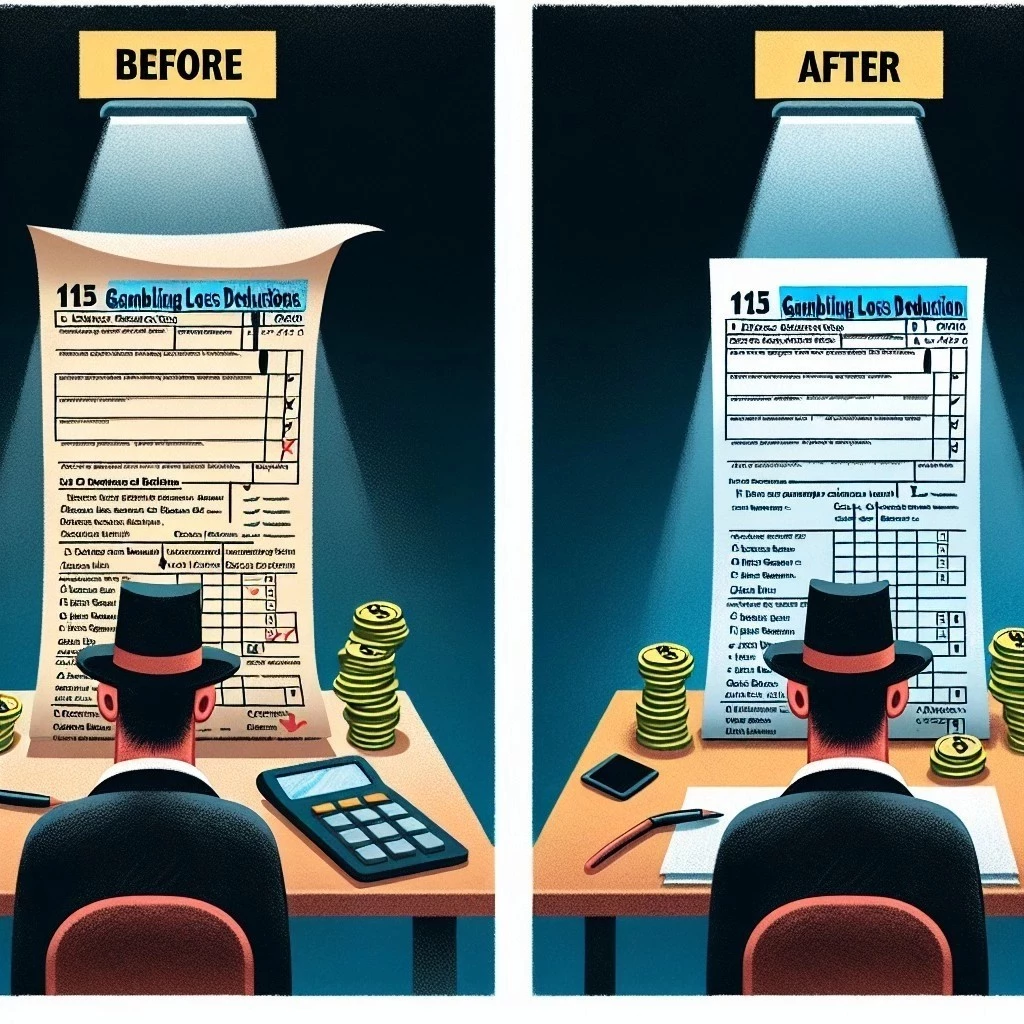Discover how new tax regulations in 2026 will cap gambling loss deductions at 90% of winnings, impacting gamblers and the financial landscape.
Changes in Gambling Loss Deductions and Their Impact on Tax Policy
Wellcome Offer:
200% up to $2,000
+ 100 Free Spins
The winnings from your free spins will be credited as bonus funds. Exclusively available for new players with fair wagering requirements.
Wellcome Offer:
250% Bonus up to $5,000
+ 100 Free Spins
Claim your bonus and spin your way to big wins! Minimum deposit of $20 required. Wagering requirements apply. Bonus valid for 30 days.
Get up to:
100% up to $1,000
+ 300 Free Spins
You need to deposit at least $25 to be eligible for this bonus. The maximum amount of money you can withdraw from this bonus is limited to $20,000 or 10-times.
Welcome Package:
500% up to $5,000
+ 250% on your 2nd and 3rd deposits
This welcome package rewards new players across their first three deposits. A minimum deposit of $25 applies, with a wagering requirement of 60x before withdrawals.
Wellcome Offer:
250% up to $1,500
+ 100 free spins
Whether you prefer generous deposit bonuses or a bundle of free spins, Cafe Casino’s welcome offer has everything you need to enhance your gaming adventure.
Wellcome Offer:
500% bonus up to $7,500
+ 150 free spins
If you're after big deposit bonuses or a load of free spins, Ducky Luck Casino’s welcome package sets the stage for an exciting gaming adventure.
Welcome Offer:
200% up to $2,000
+ 100 Free Spins
This welcome package combines a deposit match with free spins, giving new players a powerful way to kick off their VoltageBet journey.
Wellcome Offer:
200% up to $1,000
+ 30 free spins
Lovers of slot games and those looking to boost their deposit will find Slots LV Casino’s welcome offer the perfect way to jumpstart their gaming journey.
Wellcome Offer:
200% up to $500
+ Free Spins
Terms typically include standard wagering requirements and a limited validity period. Offers vary by deposit method and player eligibility.
Wellcome Offer:
250% up to $1,500
+ 50 Free Spins
All winnings from free spins are credited as bonus funds, with fair wagering requirements. Exclusive to new players.
The landscape of tax policy is poised for a substantial shift as we approach 2026, particularly concerning the gambling industry․ New regulations will introduce a legal cap limiting gambling loss deductions to 90% of gambling winnings․ This change in tax policy is set to have significant implications for gamblers, government revenue, and the broader financial landscape․
Understanding the New Deduction Limits
Currently, gamblers are allowed to deduct their gambling losses from their winnings when filing tax returns․ However, starting in 2026, these deduction limits will be capped at 90%․ This means that gamblers will only be able to deduct up to 90% of their losses against their gambling winnings, leaving a portion of their losses non-deductible․
Financial Impact on Gamblers
This legislative change will directly affect the financial planning of gamblers․ While many may have previously relied on full deductions to mitigate their tax liability, the new cap will require them to manage their gambling activities with a greater awareness of potential tax consequences․ It is essential for gamblers to understand these changes to ensure compliance with the new fiscal policies․

Implications for Tax Revenue and Government
The government’s decision to impose a cap on gambling loss deductions is expected to increase revenue․ By limiting the deductible amount, the government aims to close loopholes and enhance fiscal responsibility․ This change is part of a broader tax reform initiative aimed at increasing transparency and fairness in the tax system․
Impact on the Gambling Industry
The gambling industry may also experience an indirect impact due to this policy adjustment․ With the potential for higher tax liabilities, gamblers might become more cautious, possibly resulting in a decrease in gambling activities․ This could affect the revenue streams of casinos and other gambling establishments․
Regulatory and Legislative Changes
The introduction of this legal cap is a reflection of ongoing legislative changes aimed at refining regulatory frameworks across various sectors․ The new regulations are part of a comprehensive strategy to ensure a balanced approach to taxation that supports economic stability while discouraging excessive risk-taking behavior among gamblers․
Future Considerations
As 2026 approaches, it is crucial for individuals involved in gambling activities to stay informed about these regulatory changes․ Engaging with tax professionals to understand the full implications of these policies on personal and business finances will be essential․ Moreover, stakeholders within the gambling industry should prepare for potential shifts in customer behavior and adjust their strategies accordingly․
The upcoming legal cap on gambling loss deductions represents a significant shift in tax policy that will influence gamblers, the gambling industry, and government revenue․ As these changes are implemented, they will play a crucial role in shaping the fiscal and regulatory landscape․ Ensuring compliance with the new rules will be vital for all parties involved to navigate the evolving financial environment effectively․

























